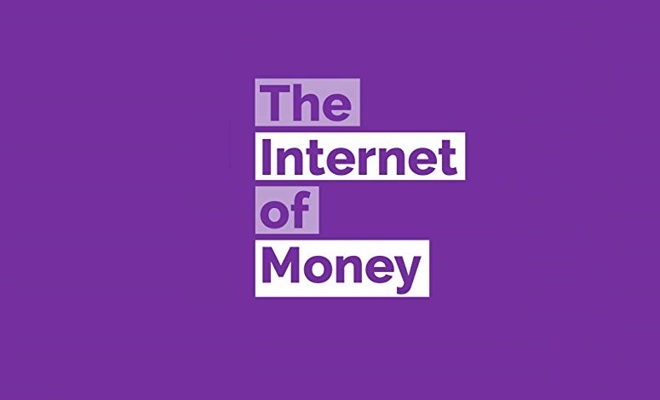
The Internet of Money: A Summary
Andreas Antonopoulos' "The Internet of Money" isn't merely about Bitcoin; it's a profound exploration of money's nature, the power of decentralization, and how technology can reshape our world. This in-depth analysis unpacks the book's core concepts, key arguments, implications, and enduring relevance.
The Genesis of Money and the Bitcoin Disruption
Antonopoulos begins by tracing the historical arc of money, from rudimentary barter systems to today's intricate financial networks. He underscores the inherent vulnerabilities of centralized systems, where power and control reside with a select few. This historical context sets the stage for Bitcoin's emergence, a decentralized digital currency poised to redefine traditional finance.Bitcoin, the pioneering cryptocurrency, is presented not just as a new form of digital cash, but as a technological and social revolution. It leverages the internet to create a peer-to-peer electronic cash system, operating on a decentralized network devoid of a central authority. This decentralization is paramount, eliminating single points of failure and control inherent in traditional financial institutions.
The Pillars of Bitcoin: Decentralization, Trustlessness, and Permissionless Access
Decentralization is the cornerstone of "The Internet of Money." Antonopoulos argues it's not simply a technical characteristic of Bitcoin, but a foundational principle with the potential to reshape society. By distributing power across a network of participants, Bitcoin mitigates the risks of censorship, manipulation, and single points of failure that plague centralized systems.
Another critical element is Bitcoin's trustless nature. Traditional financial systems rely on trust in intermediaries like banks. Bitcoin operates on a trustless model, where trust is woven into the technology itself. Through cryptographic mechanisms and consensus protocols, Bitcoin ensures transactions are verified and recorded securely, eliminating the need to trust any specific individual or organization.
Furthermore, Bitcoin is an open and permissionless network. Anyone can participate, regardless of their background, location, or social standing. This open access fosters innovation, democratizes finance, and creates opportunities for individuals previously excluded from traditional financial systems.
The Blockchain: The Engine of Bitcoin's Innovation
The blockchain is the underlying technology that empowers Bitcoin. It's a distributed, immutable ledger that meticulously records all Bitcoin transactions in a chronological and transparent manner. The blockchain is not just a technological marvel; it's a social and economic innovation. It provides a shared, verifiable record, fostering transparency and accountability.
Antonopoulos stresses the importance of understanding the blockchain's potential beyond its application in Bitcoin. He posits that the blockchain can revolutionize diverse industries, from supply chain management and digital identity to voting systems and intellectual property rights, by offering a secure and transparent platform for data recording and verification.
The Internet of Money: A New Financial Landscape
"The Internet of Money" explores Bitcoin's profound implications for the future of finance. Antonopoulos argues that Bitcoin represents not just a new digital currency, but a fundamental paradigm shift in how we perceive money and value. He envisions a future where Bitcoin and other cryptocurrencies are seamlessly integrated into the fabric of our daily lives, facilitating frictionless transactions across borders and between individuals.
The book also examines Bitcoin's potential to address systemic challenges within the global financial system. It discusses how Bitcoin can provide access to financial services for the unbanked and underbanked populations, drastically reduce the costs of international remittances, and offer individuals a hedge against inflation and currency devaluation.
Beyond Finance: The Societal and Political Repercussions
Bitcoin's implications extend far beyond the realm of finance. Antonopoulos argues that Bitcoin has the power to reshape society in profound ways. By empowering individuals with greater control over their money and data, Bitcoin can promote economic freedom, protect privacy, and bolster self-sovereignty.
The book also explores Bitcoin's potential to disrupt traditional power structures and foster greater transparency and accountability. By enabling decentralized governance and peer-to-peer interactions, Bitcoin can challenge the concentration of power in the hands of governments and corporations.
Navigating the Challenges and Uncertainties
While "The Internet of Money" presents a compelling vision of Bitcoin's potential, it also acknowledges the challenges and uncertainties that lie ahead. Antonopoulos discusses the scalability issues facing Bitcoin, the regulatory hurdles it encounters, and the potential for misuse by malicious actors.
He emphasizes the importance of addressing these challenges thoughtfully and responsibly. He argues that Bitcoin's future hinges on the community's ability to develop innovative solutions that preserve the core principles of decentralization, security, and open access.
A Call to Action and the Enduring Vision
"The Internet of Money" is more than just an analysis of Bitcoin; it's a call to action. Antonopoulos encourages readers to educate themselves about Bitcoin and its transformative potential. He urges them to become active participants in the Bitcoin community and contribute to the evolution of this groundbreaking technology.
The book concludes with a powerful message: the future of money is in our hands. By embracing the principles of decentralization, trustlessness, and open access, we can create a more just, equitable, and empowering financial system for everyone. "The Internet of Money" remains a vital resource for understanding the digital revolution and its implications for the future of money, finance, and society as a whole.
